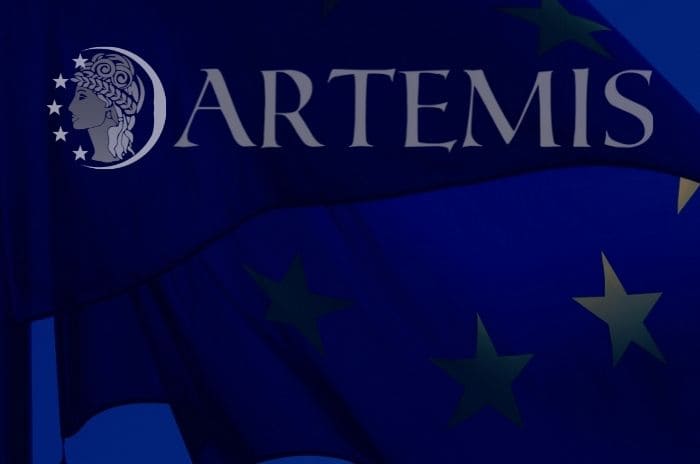The EU Commission’s Report, 2020
According to the recently published report of the EU Commission in 2020, based on data provided to the EU Commission by Member States, in the period 2015-2018, a total of 37 European Protection Orders (EPOs) were issued across the EU; of these, only 15 were recognised and executed. The vast majority of the EPOs were issued by a single Member State, with 2 other Member States accounting for the remainder of the issued EPOs. No EPOs had been issued nor recognised and executed in 10 Member States.
In short, the EU Commission’s Report clearly reveals, in the 5 years following the transposition of the EPO Directive, the underuse and lack of application of the EPO across the EU.
Artemis Project: Final Research Report
As part of the Artemis Project, the partners produced a final research report with a comparative analysis of all the findings of the national reports on the implementation of the EPO in the partner countries. The final report highlights some common points among the partner countries:
- There is limited data available on the issuance of EPOs, as there are no official registers recording the number of EPOs in any of the partner countries;
- Despite the lack of data, a very low number of EPOs have been issued or recognised in the partner countries, with only 2 EPOs recognised in Croatia and 1 EPO issued in Italy;
- There has been no training on the EPO of legal professionals or other professionals likely to come into contact with victims in need of protection; and
- There have been no nationwide awareness raising campaigns on the EPO aimed at the general public in any of the partner countries.
A snapshot of the Artemis survey results
- According to the results of the survey among EU citizens, out of a total of 2,881 respondents, 745 reported having experienced some form of violence or abuse (25.8%); this is equivalent to 1 in 4 across the five partner countries. Of these respondents, only 171 (23%) had requested some form of Protection Order (PO) in the context of GBV, of which, just over half (90) were granted.
- Both legal professionals and NGO representatives consider POs largely ineffective and inadequate across the board. The majority of legal practitioners had a negative perception of the POs available to victims; less than 25% in Croatia, Cyprus and Italy felt that POs were effective.
- The overwhelming majority of NGO respondents across the partner countries also reported that POs are not adequately enforced: only 15% of NGO respondents in Cyprus answered that POs for victims of violence are effective, 20.8% in Greece, 23% in the Czech Republic and Italy, and only 4.6% in Croatia.
- There is a general lack of awareness amongst women victims of GBV of their rights to protection and access to justice. According to the survey results, victims cite this lack of awareness as a significant barrier to accessing POs. Similarly, an overwhelming majority of NGO respondents across the project partner countries (82.5%) agreed that lack of awareness amongst victims impedes access to POs.
- Training and awareness-raising campaigns on the EPO would indeed be beneficial to the implementation of the EPO. This is supported by the results of the survey, with 95% of legal professionals and 80% of NGO professionals declaring that they would benefit from awareness-raising and specialised training programmes on the EPO.
What are the gaps resulting in the underuse of the EPO in the partner countries?
The final research report reveals gaps in the national legislative frameworks governing the issuance of national protection orders, which form the basis for the issuance of an EPO. There is uneven coverage of victims of all forms of gender-based violence, resulting in gaps in protection; for example, in Cyprus, Croatia and Greece protection orders are mainly available within the narrow framework of domestic violence or violence in the family, which imposes conditions such as cohabitation, sharing a family home and children.
Another important finding of the report is that factors which limit the effectiveness of national protection orders also constitute barriers to the effectiveness of the EPO: the inadequate data collection on national protection orders explains the lack of data collection on EPOs; likewise, the absence of monitoring mechanisms for national protection orders reflects the lack of monitoring of EPOs. The report also found that across all of the project partner countries, the use of protection orders in cases of GBV is low in relation to the corresponding prevalence of GBV. The low use of national protection orders results in the low use of the EPO: this is compounded by a general lack of awareness among women victims of GBV of their rights to protection and access to justice.
What can be done?
As a starting point, data collection should be improved at both the national and EU levels: Member States should set up a centralised data collection system that records the number of protection orders and EPOs issued and/or received from other Member States; this system should also include data on breaches of protection orders and EPOs, as well as the sanctions imposed.
A common EU-wide conceptual framework should be developed to identify and define the various types of GBV that may provide the basis for the issuance of protection orders and EPOs, with a clear gender perspective: this will address the gaps identified in national legal frameworks which limit the use of protection orders and by extension, the EPO.
Member States should incorporate the EPO Directive, as well as the Regulation and the Victims’ Rights Directive, into their national strategies and action plans to combat GBV: thorough consideration should be given to the practical application of these measures in the national context.
In addition, Member States should conduct national awareness-raising campaigns on the EPO to raise the awareness of EU citizens: the right to an EPO should be included in existing awareness-raising material on GBV and victims’ rights issued by the police and other authorities, and made widely available to victims.
Similarly, Member States should conduct organised courses, training and information activities for legal and NGO professionals who provide advice and assistance to women victims of violence and abuse.







Recent Comments